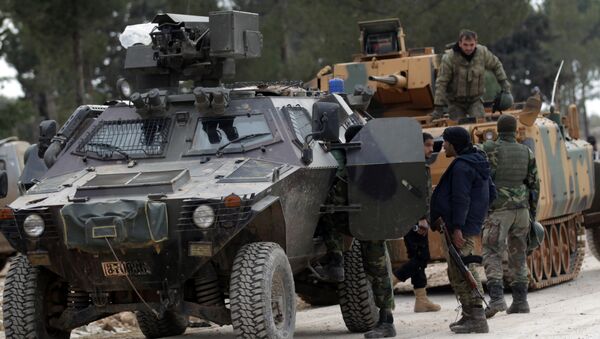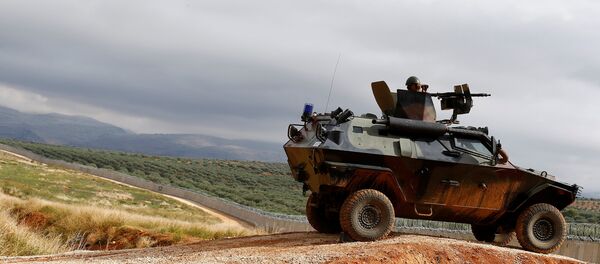On Wednesday Turkish Prime Minister Binali Yildirim announced that Ankara's Euphrates Shield Operation came to an end.
"Operation Euphrates Shield has been successful and is finished. Any operation following this one will have a different name," Yildirim told NTV broadcaster.
"It was noted that the Operation 'Euphrates Shield' which was started with the goal of ensuring national security, preventing the threat from Daesh and return of Syrian refugees to their homes has successfully completed," a statement by the Turkish National Security Council read.
Meanwhile, the question remains: "Why now?"
Speaking to Russian media outlet RBC, Ilshat Sayetov, a researcher with the Institute of Oriental Studies of the Russian Academy of Sciences (RAS), suggested that the major goal of the operation was to capture Manbij and to prevent the Syrian Kurds from maintaining control over the Syrian-Turkish border.
However, while Ankara had managed to throw a wrench into the Syrian Kurds' works, it failed to take Manbij under its control, he noted.
As a result, the Manbij Military Council handed control of several areas west of the city of Manbij to the Syrian Arab Army (SAA), as part of a Moscow-brokered deal to create a buffer zone between the Kurds and the Turkish armed forces.
Ankara accepted the deal and signaled that it by no means opposed the establishment of the SAA's control over the northern Syrian city of Manbij.
Commenting on the matter, Ünal Çeviköz of Hurriyet.com explained that Turkey risked prompting Washington's wrath by attacking the Kurdish militia, which is regarded by the Pentagon as a US ally on the ground in the fight against Daesh.
With the operation stalled, Recep Tayyip Erdogan had found himself in an embarrassing position, Sayetov noted. The truth of the matter is that Ankara is going to hold a referendum on constitutional amendments April 16. The amendments envisage Turkey's transformation into a presidential republic.
In light of this, the only way out for the Turkish government to save its face ahead of the vote was to officially halt the operation, Sayetov explained.
For his part, Volkan Ozdemir, director of the Institute for Energy Markets and Policies, suggested that Ankara is no longer able to pursue its goals in Syria as it contradicts the policies of two global players, Russia and the United States, in the region.
Both Moscow and Washington are unlikely to allow Turkey to continue to crack down against the Syrian Kurds, he assumed.
"But this does not mean that Ankara will abandon its plans to clear Syria from Kurdish terrorists in the long run," Ozdemir told RBC.
Ankara considers the Kurdish People's Protection Units (YPG) as an affiliate to the Kurdistan Workers' Party (PKK) designated as a terrorist organization in Turkey.
So, is it possible that Ankara will kick off Euphrates Shield 2.0?
According to former Turkish special forces operative Abdullah Agar, this option is on the table.
"Turkey has been unable to achieve all of its goals as part of Operation Euphrates Shield since the Kurdistan Workers' Party (PKK) and the People's Protection Units (YPG) received support in the region," Agar told Sputnik Turkey.
Agar explained that the Turkish military failed to complete their mission in Manbij and Tell Rifaat.
"Taking this into account, Turkey is likely to come up with a series of new initiatives with regard to ensuring its national security, strengthening its unitary state and fighting terrorism," the security analyst predicted.






